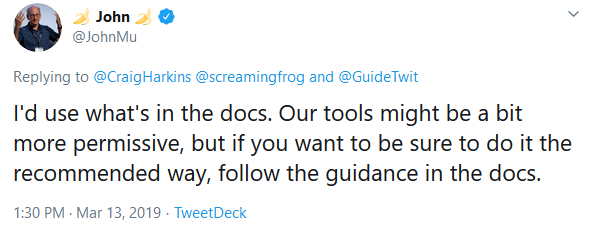Schema is now an integral element of SEO. To make chasing Google’s rich results that little bit easier, we’ve gathered up some of the most useful resources on the subject.
Whether you’re just getting started with Schema, or can’t figure out how to trigger that illusive rich snippet, we’ve got a bit of something for everyone.
We’ve also included a handful of people to follow on Twitter. This is where a lot of new stuff breaks, and ‘in the wild’ rich results get shared, so it’s worth keeping an ear to the ground.
Contents:
- Google’s Schema Resources
- Other Search Engines
- Schema.org Official Documentation
- Content & Guides
- Schema Markup Generators
- Schema Plugins and Tools
- People to Follow (on Twitter)
Google’s Schema Resources
I can’t really start without first covering Google’s own resources and tools. For SEO’s wanting to get rich results in Google’s SERPs and looking for ‘definitive’ guidance, Google’s own resources would seem the obvious source. However, as is often the case, there’s currently a lot of discrepancies between the various tools and guidelines that Google provides.
This is something that they acknowledge. And as such, John Mueller recommends following the documentation (we can assume this to mean the developer guidelines) rather than relying on their associated tools which can produce different results.

Introduction to how structured data works
Good starting point for a walkthrough of how structured data works behind-the-scenes. It’s probably a bit basic for most SEOs, but often useful to share with clients or colleagues that haven’t encountered it before.
The gallery gives a decent top-level view of different types of structured data they support. Each of the types then link through to the more detailed developer guidelines as mentioned above.
At present, these are what we’re treating as the ‘bible’ for Schema as far as Google is concerned. For each schema type you get usage guidelines/restrictions, specs, code examples, and probably most important: details of required and recommended properties.
As the name suggests, this one validates your structured data. You can test all structured data on a URL, or just copy/paste your code. The main advantage of the SDTT over the Rich Results Testing tool is that it goes beyond Google's supported schema types. However, the main down side is that Google have announced that they'll no longer be supporting the SDTT! If you're looking for a replacement, have a look at Patrick's post on Structured Data Testing Tool Alternatives.
As with the Structured Data Testing Tool, you can test either URLs or code snippets. This tool goes a step further though and lets you know if the page (or code) is eligible for rich results, and details the individual items found.
Eligibility doesn’t guarantee you’ll actually start appearing in rich results, but it’s a step closer.
It’s worth pointing out that the tool is still currently in Beta and not all rich result types are supported. However these seem to be getting added to regularly.
If you’re doing SEO, then you should already have GSC setup regardless. But it’s worth remembering that it’s an important source of feedback for your Schema implementation.
Google has recently been rolling out more Schema-type specific reports which will appear in the ‘enhancements’ section of your GSC account if and when they’re detected.
If you’re new to Schema and want to try marking up some of your existing pages, this isn’t such a bad place to start learning. Though be aware that (strangely) the tool doesn’t appear to do any validation or checks against Google’s own guidelines. The tool will quite happily let you generate code with missing ‘required’ fields - so make sure you validate using the other tools before implementation.
Google’s Data Highlighter is a ‘quick and dirty’ way of applying structured data without any code implementation. If you can’t get on-site changes made then it provides a backup option. But be aware, it has its limitations and I wouldn’t recommend until you’ve exhausted other solutions.
If you’re new to Schema, or haven't actually had any hands-on experience with it, this is a good way to get your hands dirty a little (well mildly grubby at least) with the implementation side of things. The guide walks you through the implementation of structured data (recipes and embedded reviews) on a dummy website.
Search Developer Documentation Updates
For keeping up to date with changes to Google’s guidelines they’ve released a ‘latest updates’ page. It’s only recently been released, so we’re yet to see how regular and comprehensive the updates are, but it’s worth checking in from time to time.
There’s a pretty active structured data board within the webmaster forum. There’s some regulars in there that seem to know their stuff, so most of the issues posted look like they’re getting resolved. Good place to go if the documentation isn’t giving the answers you need.
Other Search Engines
Although Google is typically the focus for most English language SEO, other search engines shouldn't be dismissed. Although some of the alternative search engines are taking similar approaches to Schema, they do differ. As such, we've included guidelines from Bing and Yandex:
Bing
Yandex
Schema.org Official Documentation
The Schema.org vocabulary currently consists of over 800 types and is growing all the time, yet Google only supports ~20. Although a large proportion of these types will never be relevant for SEO, it does give an idea of the potential for growth in this area. It’s worth having a dig around to get an understanding of the full extent of Schema.org.
Structured Data Guidelines Change Alerts
Google has a nasty habit of quietly making little changes that suddenly mean your structured data doesn't meet their criteria anymore. After launching new Structured Data features in the Sitebulb tool, we've needed to keep track of every little change on both Schema and Google's guidelines.
We built a system to monitor them, then thought: "why not share it with everyone else?" - and thus our new Structured Data Change Alerts system was born!
Register your email to get free Structured Data Alerts as soon as guidelines are updated, or in a monthly round-up email. This is a free service open to everyone, whether you're a Sitebulb user or not.
You'll also find a timeline of when previous changes were made - handy if you need to look back and find out when Google changed the goalposts!
Register for free Structured Data Guidelines Change Alerts
Content & Guides
Schema.org Advanced Bootcamp
by SchemaApp
Some of the initial content is slightly dated, but as long as you keep this in mind it’s mostly still relevant. The bootcamp modules go beyond the usual code and implementation to also cover the wider usage and history of Schema, and how to formulate and execute a semantic search strategy.
Guide to Getting Rich Snippets: Microdata, JSON-LD & Schema.org
by Daniel Butler
Another guide that’s been around a while. It’s still a great one, but keep in mind that a few things might have changed since it was published. The guide includes a pretty comprehensive list of Schema types giving guidance, markup and example live rich snippets for each one.
4 Little-Known FAQ Schema Filtering Commandments
by Brodie Clark
Google doesn’t tell you everything you need to know to get your Schema appearing as rich results in the SERPs - who’d have thought it!
Brodie Clark lays out the filters that Google’s algorithm layers on top of their Schema guidelines for FAQs. By being aware of these filters and ensuring your markup complies with them, you’ve got a much greater chance of your FAQs appearing in the SERPs. Aside from these specific FAQ filters, the wider filtering concept is one worth remembering when implementing any Schema.
Testing JSON-LD NewsArticle Markups + linked Images of 240 publishers using Puppeteer
by Tobias Willmann
One of the main issues with most of the Schema validation tools (including Google’s own) is that they validate the markup and that attributes are present, but they don’t check that those attributes meet Google’s guidelines. One of the most prominent examples of this is for image formats and sizes. Tobias details how he used Puppeteer (a headless browser) to test images on 240 publisher websites and presents his findings.
Mixing JSON-LD and Microdata: All You Need to Know
by Andrea Volpini
Google is increasingly pushing JSON-LD as their prefered format for Schema implementation, but microdata remains the most widely used. In an ideal world, you’d choose your format and stick to it. But as we well know, the world isn’t perfect, and things often get a bit messy. Andrea details the ‘do’s and don’t’ for instances when you need to mix JSON-LD and microdata markup.
Google’s Featured Snippet-Apocalypse, FAQ Schema, No Snippet & Max Snippets Tags
by Claire Carlile
In January (2020) Google decided it was going to ‘clean up’ the SERPs by de-duplicating results and featured snippets. Known by some as the ‘Featured Snippet-Apocalypse’, it seemed to unravel a lot of hard-work for some people with unknown consequences. Claire was one of the ones impacted by this. Rather than just accepting it, she set about experimenting with how her clients' appearance in SERPs could be manipulated and optimised through Schema implementation - this post documents that experimentation.
Node Identifiers: From Structured Data to Linked Data
by Patrick Hathaway
Node identifiers might not sound like the most exciting topic, but they're pretty bloody important in the world of the semantic web. They allow you to take fragmented structured data, and join it up into 'linked data'. This is a great piece for if you're looking to take your stuctured data to the next level, or even just get an understanding of some of the more advanced elements of structured data.
How to Secure SEO Budget
by Chris Simmance
One of the most difficult parts of structured data is often getting buy-in from the business to implement it in the first place. This article from Chris looks at how to deploy a structured data proof-of-concept campaign using Google Tag Manager, to help make a business case and secure budget.
Featured Snippet User Behavior Survey - Twitter Thread
by Marie Haynes
Marie Haynes surveyed her non-SEO friends about their behavior in search results including featured snippets. Many of them said they avoided the featured snippets, thinking they were ads.
The Twitter thread certainly gives some food for thought when considering your approach to rich results. I’d be interested in seeing some wider research done in this area too.
Schema Markup Generators
FAQ Page Schema Generator
by Saijo George
Great tool for non-developers that want to generate valid FAQ Schema markup quickly and simply - No-frills, it just does the job.
Just input your question and answer copy, and the tool will produce a code snippet using JSON-LD Schema markup for you to copy/paste onto your site
Merkle Schema Markup Generator (JSON-LD)
Another Schema markup generator, but this one covers multiple Schema types.
Schema types supported: Article (NewsArticle, BlogPosting), Breadcrumb, Event, FAQ, How-To, Job Posting, Local Business, Organisation (Logo, Contacts, SocialProfile), Person (SocialProfile, Job Information), Product (Offer, AggregateRating, Reviews) Recipe, Video, Website (SitelinksSearchbox).
Schema Plugins and Tools
The ‘Yoast SEO’ Wordpress plugin has supported some basic Schema markup for a long time now. But in early 2019 the Yoast team upped their game with the 11.0 release incorporating functionality to generate a structured data graph for every page on your site.
If you have a site using the Wordpress CMS and are looking to automate your Schema implementation, then this is a good place to start.
Rather than being part of a broader toolset, Schema App focuses on providing an end-to end Schema solution for those with enterprise level needs. Their main differentiating feature is the ability to automate Schema markup on all platforms.
People to Follow
Just to be clear - I’m not advocating any kind of stalking. But these are people that you really should be following if you want to keep up to date with what’s happening in the world of Schema and rich results.
Marie Haynes - @Marie_Haynes
Marie is a must-follow for keeping up to date with Google algorithm updates. As part of that she’s usually at the forefront of rich results changes and updates to Google’s support of Schema.org and the rich results environment .
Martha van Berkel - @marthavanberkel
Being the CEO and co-founder of Schema App, Martha is well and truly focused on all things Schema.
Jarno van Driel - @JarnoVanDriel
While most people focus on how Google handles Schema, Jarno takes a wider approach and also gives some great insights into the likes of how Bing is handling Schema, and the wider usage of structured data.
Aaron Bradley - @aaranged
Aaron takes things wider again, and while he’s not strictly an SEO these days, his work as a Knowledge Graph Strategist is intrinsically (increasingly so) linked so search. If you want to learn more about the semantic web and Google’s knowledge graph, Aaron is the man to follow. Be warned though: it gets a bit technical!
Brodie Clark - @brodieseo
Brodie is one to keep an eye on for ‘in the wild’ rich result examples and observations. He’s also produced one of the most useful posts I’ve come across on Schema filtering (you’ll find a link in the Content & Guides section).
Izzi Smith - @izzionfire
I’m not sure who presented the title but I’ve heard Izzi referred to more than once as the “Queen of Featured Snippets”, and I’m not going to argue. If you get the opportunity to see her talk, take it.
John Mueller - @JohnMu
If you’re an SEO, this is another no brainer. John might be ‘Webmaster Trends Analyst’, but he helps out the SEO community where he can and provides some insight into where Google is ‘coming from’ on a lot of issues.

Geoff is a digital marketing & SEO Consultant with over 15 years of experience working with clients around the globe. A long-time friend of Sitebulb, Geoff has even spent some time as part of the team, which clearly explains why he loves (or hates?) doing SEO audits.
 }
}